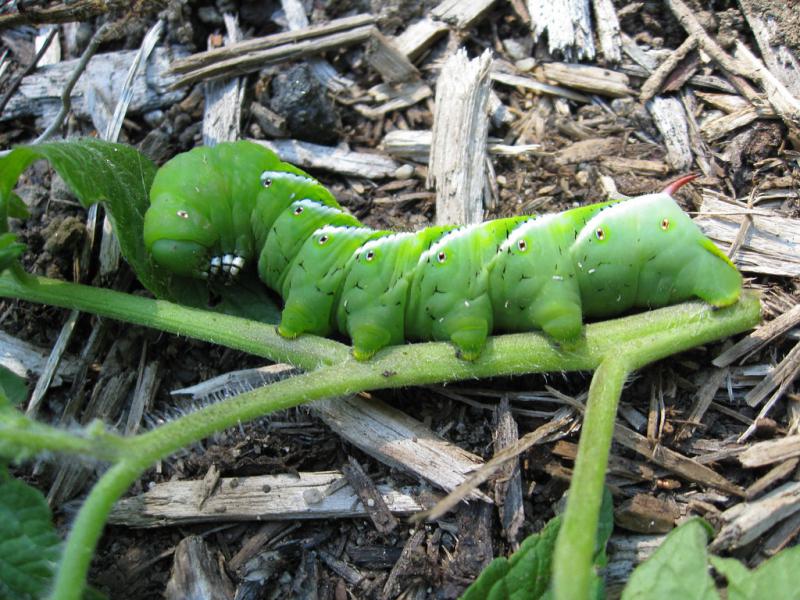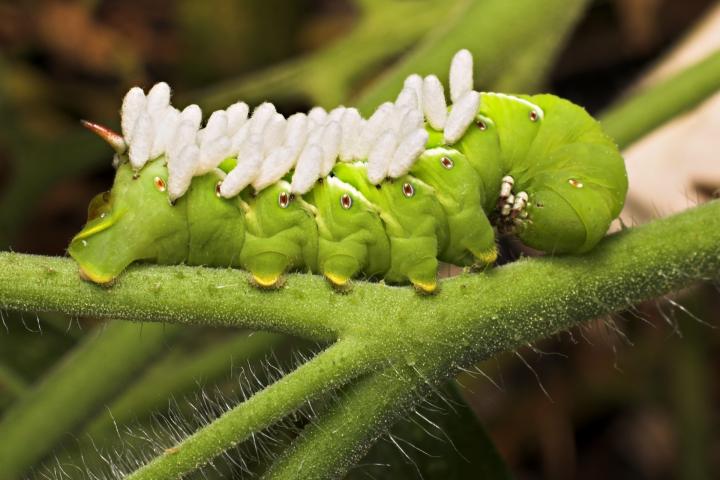A PLAGUE of green-eyed monsters are wreaking havoc across Mallorca’s countryside.
Farmers are at a loss when it comes to stemming the damage caused by hornworms on their agricultural crops.
Capable of doing serious damage to tomatoes, peppers, aubergines and potatoes, hornworms are large caterpillars, adept in defoliating a plant in just a few days.
Despite their imposing size, which can reach up to 10cm long, hornworms are often difficult to spot because of their protective green colouring.
Consuming entire leaves, small stems and sometimes chewing on pieces of a vegetable or fruit, farmers will often find large areas where feeding has occurred before they even spot this garden pest.

In recent years, the presence of hornworms in Mallorca has grown considerably.
This is mainly due to their resistance to insecticides and climate change where a lack of rain and an increase in temperatures on the island provide the perfect conditions for their growth.
Farmers now warn that many of their greenhouse tomato plantations are completely lost and that the situation may get worse as summer approaches – a time when hornworms cause the greatest damage.
“The situation is really worrying in greenhouses where the life cycle of hornworms does not end and the fact that the insect has great reproductive potential,” explained Jaume Pocovi from Unio de Pagesos, a union that protects the interests of farmers.
Putting forth a series of measures to combat their destruction, Pocovi recommends farmers making use of alternatives to insecticides, such as biotechnological controls which are not only sustainable but respectful to the environment.

This includes the use of synthetic pheromones that imitate the molecular composition of the female sexual hormones as well as laying down a large number of bait traps.
Working alongside the union, is Andreu Joan, the head of the Department of Agriculture of the Spanish Government.
He said: “Once the production of crops is completed, plants should be burned or buried to avoid the proliferation of hornworms.”
Participating in an international conference to discuss different strategies against pests at the end of last year, Joan determined that the species is one of the main threats against agricultural crops in the entire Mediterranean.
He stresses that simple control strategies do not work, so integrated strategies are needed. His department is now studying six farms in the Pla de Sant Jordi region to evaluate the impact of chemical and biotechnological controls on the hornworm plague in a bid to tackle the all-encompassing problem.
Although being a somewhat fierce-looking caterpillar, the hornworm isn’t dangerous to humans or animals.
However, tomato production is one of the most important horticultural crops in the whole of the Balearic Islands, amounting to a total area of ??366 hectares and garnering a production of more than 8,700 tons, according to figures released from the Government.
Click here to read more Mallorca News from The Olive Press.








